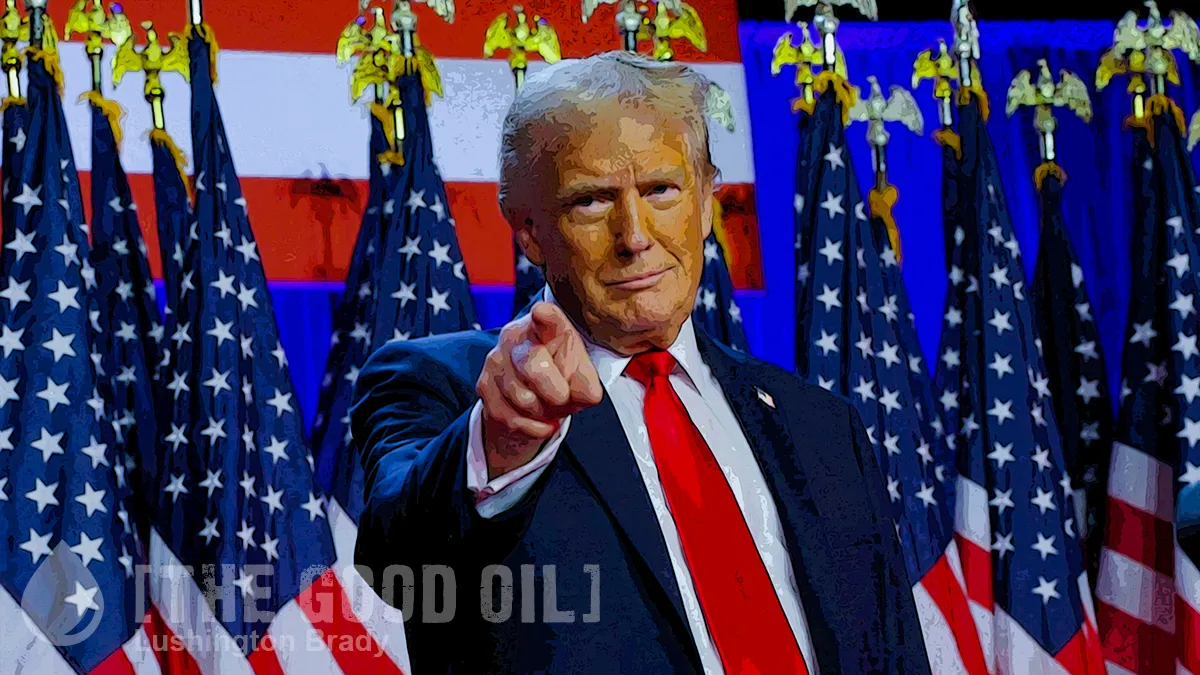Table of Contents
Was the Long March through the Institutions a colossal waste of time? This might seem a strange statement to many on the centre-right, who have long lamented that nearly every institution of culture and politics, from the universities to Hollywood, to even supposedly conservative parties like National, has been taken over by the left: ‘gone woke’, to use common parlance.
The reasons for pessimism have been abundantly clear, after all. Although the strategy was formulated by Marxists Rudi Dutschke and Herbert Marcuse in the late ’60s, it didn’t begin in earnest until the ’80s. For most of the ’70s, the left were addicted to violent revolution, as evidenced by the likes of the Baader-Meinhof Gang in Europe, and the Weather Underground and their legion of imitators in the US. By the ’80s, the left had wised up and turned to infiltration and lawfare. Even as Thatcher and Reagan ruled supreme, the foundations were being steadily eaten away from under them by a million leftist termites.
In the 2000s, though, the same happened to the triumphant left. They conquered the ivory towers, only to find them empty and windblown. The peasants had skipped off to the greener pastures of the internet, with its memes and blogs.
And they’ve trained their guns on the ivory guns. Brexit, the first Trump administration, the Voice referendum in Australia: those were the first salvos. The Voice was widely hailed as the first direct referendum on woke identity politics. It was a humiliating defeat for the left, but they didn’t learn from it.
The second Trump victory may well prove to be the first real sapping of the ivory towers.
Like the British in Singapore, the left had their guns trained conventionally out to sea. So the right merely rolled up behind them on a million social media bicycles.
Perhaps the most surprising finding of the authoritative exit poll of the election is that the biggest noise in the campaign was not the biggest vote-decider. The Associated Press conducts the broadest exit poll of voters as they leave polling stations on election day after casting their ballots. It’s called AP VoteCast, a nationwide survey of 120,000 voters. In the words of the Associated Press’ own report: “While inflation and immigration emerged as the dominant themes in this year’s presidential race, another issue was prominent in the minds of voters for both major candidates: the stakes for democracy.”
Except that, contrary to the Democrats’ campaign theme, voters didn’t see Donald Trump as a threat to democracy. Rather, it was the Democrats who were judged to be the threat.
A respected Democrat pollster, Celinda Lake, said that based on her work with focus groups during the campaign, she had found “the great irony is that Trump” – who was supposed to be the great threat to democracy – “won the threat-to-democracy vote”.
The Dems were seen as a paramount threat to democracy, not just because of their unconscionable behaviour, dating back to Barack Obama, of weaponising the institutions of the state – from the IRS to the courts – against their opponents. Most conspicuously in the blatant show-trials heaped on Donald Trump. (To be fair, the Establishment Republicans, the RINOs, dabbled in this stuff prior to Obama – and made a noose for their own necks. Trump is not an Establishment Republican.)
Moreover, Kamala Harris was seen as the epitome of everything voters hated about the Long March ideology.
She represented the left activist movement in which “progressive concern for the working class was replaced by targeted protections for a narrower set of marginalised groups: racial minorities, immigrants, sexual minorities and the like,” as Francis Fukuyama puts it in the London Financial Times. Young men resent being demeaned as inherently “toxic”; many voters resent the loss of traditional language and social customs […]
In Australia, Labor’s referendum on the Voice appears similarly to have alienated many voters by signalling boutique social issues as a priority over working people’s concerns.
Nowhere was the left Establishment detachment more obvious than in their obsession with celebrities and their concomitant complete denial that anything was wrong with the economy. MSNBC anchor Joe Scarborough sneered at the idea that cost-of-living was in crisis for working-class Americans. Scarborough mocked that, “I went to the grocery store – butter is over three dollars.” After an uncomfortable silence, his co-host informed him, on air, that butter was over seven dollars. “Butter is seven dollars?” Scarborough (net worth $25 million) scoffed. “What, is it framed in gold?”
The Dems’ problem in a nutshell: when the only people you talk to are multimillionaire elites, cost of living is never an issue. Let them eat cake, so to speak.
Similarly, trotting out a parade of mega-wealthy celebrities to sing your praises does nothing to win over struggling working-class folk.
“People are obsessed with celebrity in the modern era but that doesn’t mean it produces votes,” Larry Sabato, director of the Center for Politics at the University of Virginia, said.
“People […] do not vote for X, Y or Z because Beyonce or Hulk Hogan or anybody else tells them to.”
Have the left learned anything from their humiliating defeats? Not if Democrat pollster Lake is any indication.
She says: “The policies are fine. The problem is: We don’t have an overall narrative and an overall brand.”
Get that, voters? The Democrats are right, but you were just too stupid to get it.
Except that, as Lake tacitly admits, the voters are actually pretty smart.
What happened to the Democrats’ great hope that abortion would prove a winning issue? Lake says that its power was blunted because many women thought it could be managed by states and, indeed, it was on the ballot last week in 10.
And what of Trump’s blatant racism and sexism? “Black men said they dealt with racism all the time and Trump wouldn’t make it any worse, but at least he’d get the economy going,” explains Lake.
Cut through the obvious left slant of the above (it’s the Age, after all) and the takeout is clear: the left have got their heads so far up their own arses they simply cannot comprehend that they might be wrong. Or that working-class voters are smart enough to see through their woke hysterics.







